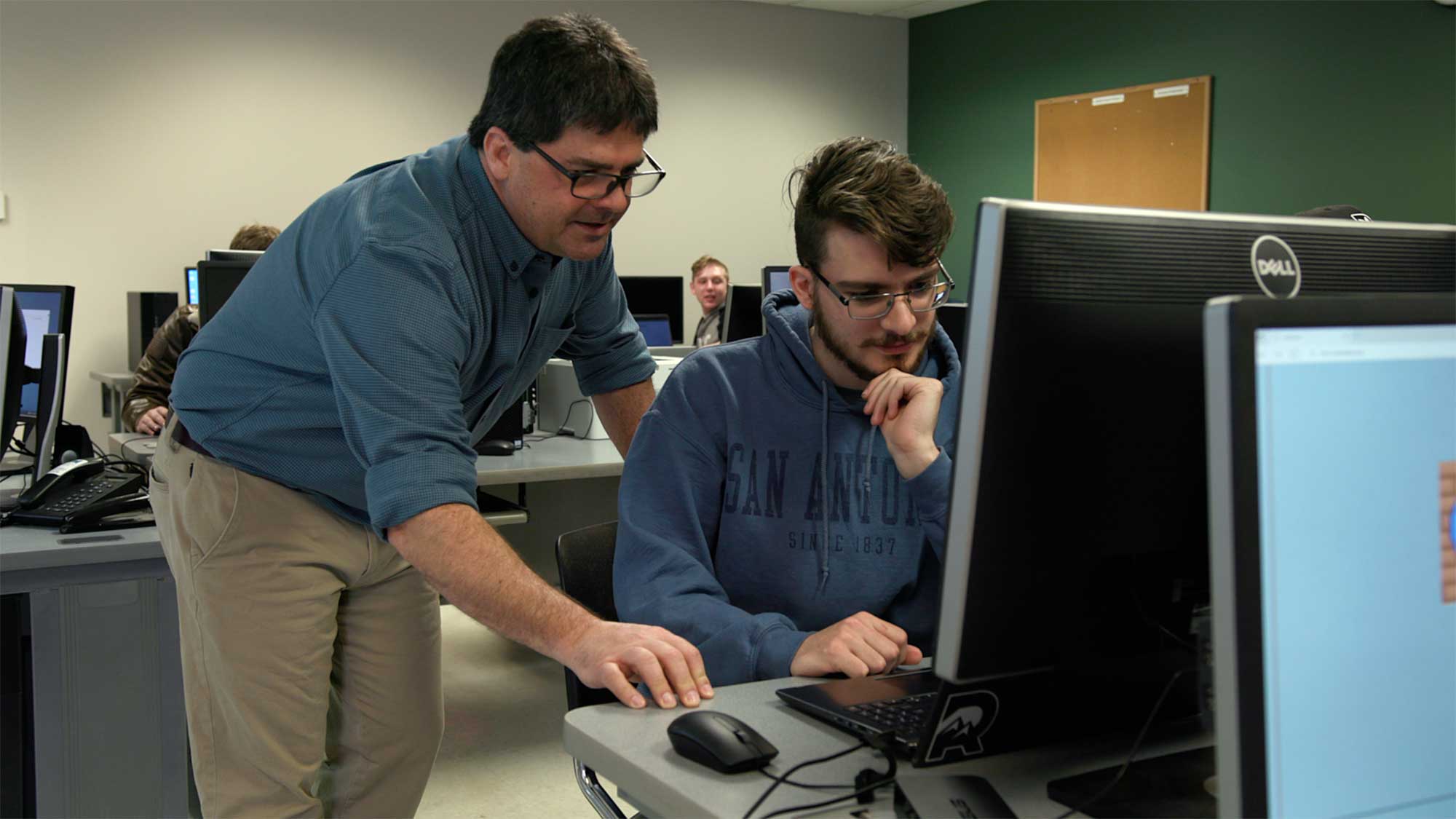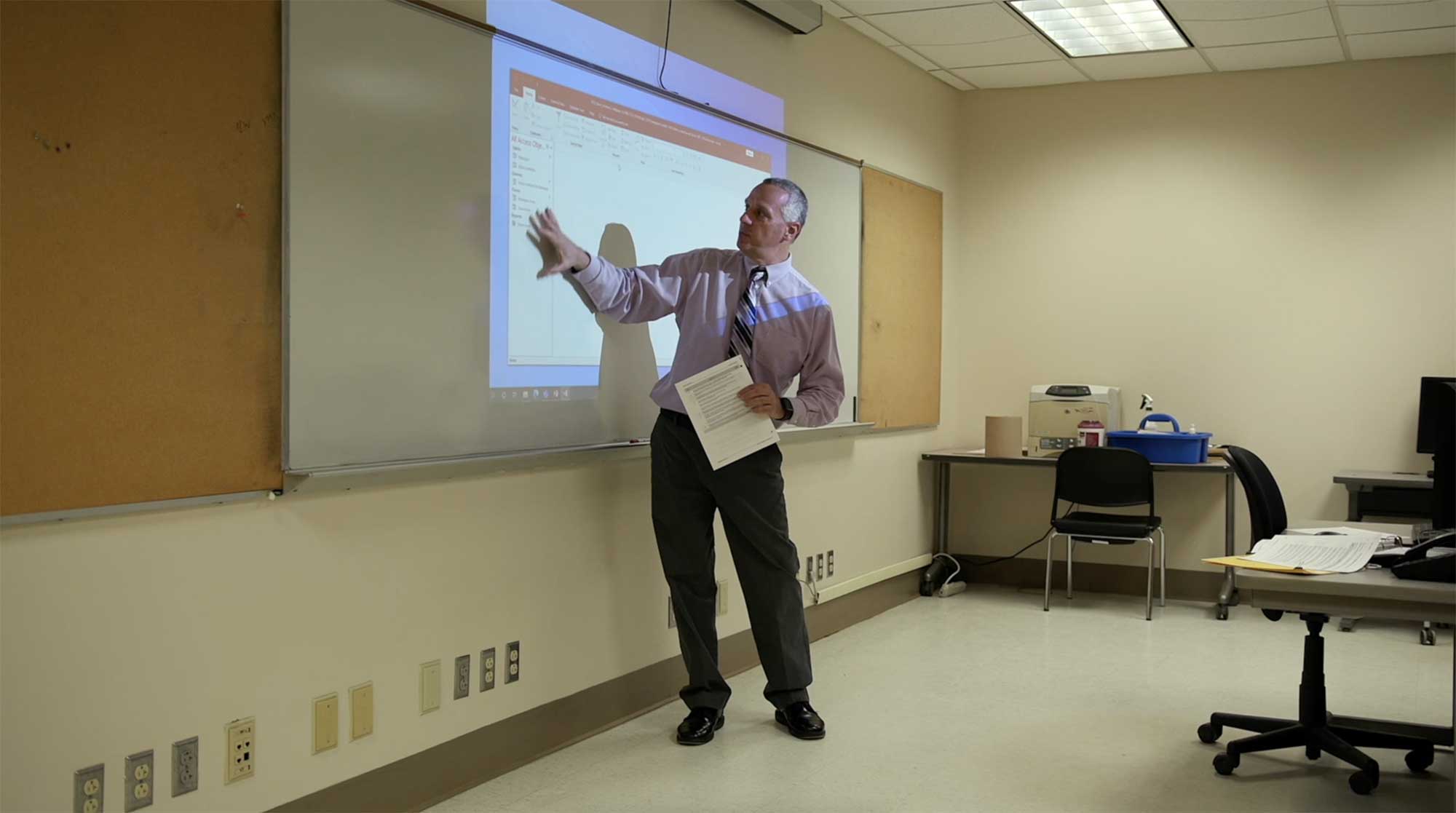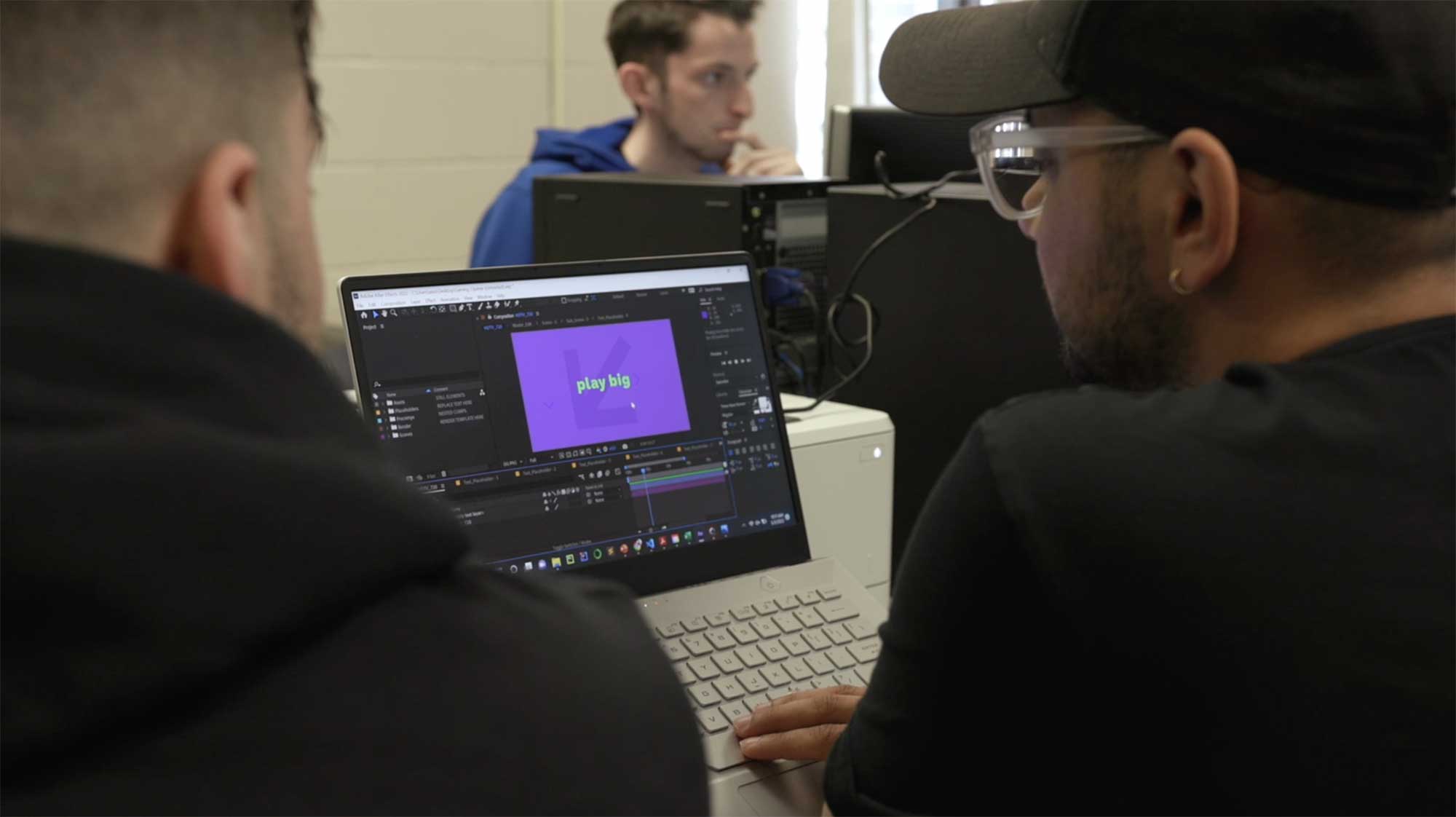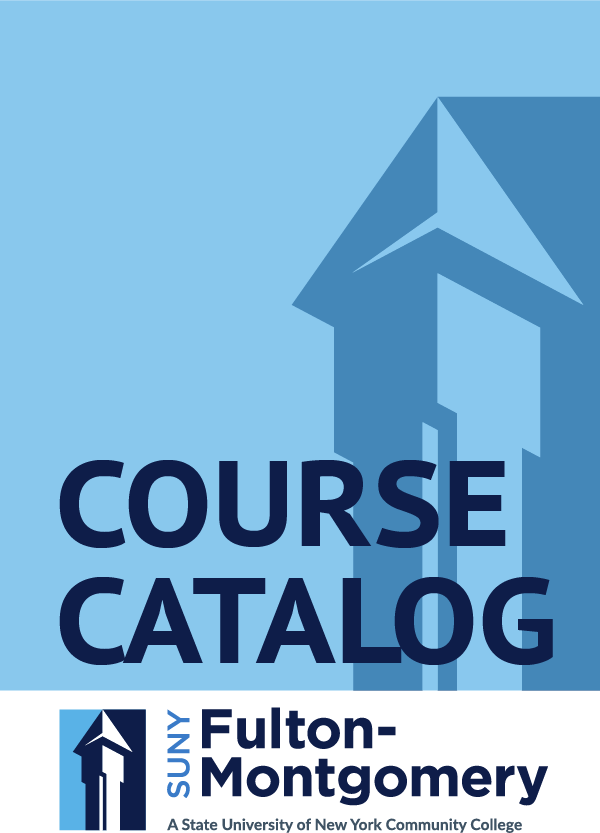Why study Computer Science AS at FMCC
This program is designed for students who plan to transfer and continue their studies in programs leading to a Bachelor’s degree. The program emphasizes an understanding of computing, data structures, object-oriented and modular programming techniques, and algorithm analysis.
Request info for this program
Career Pathways
Our region boasts a wide variety of career opportunities with competitive salaries in computer science. The positions presented are the most common career pathways FMCC graduates have taken and are just a sample of the many career possibilities.
The labor market and employer information are specifically presented for the Amsterdam, Gloversville, Capital District, and the Mohawk Valley regions. Salary information is based on estimates within the Capital District.

MEDIAN SALARY
$78,036*
SALARY RANGE $56,595 - $110,640
Create, modify, and test the code and scripts that allow computer applications to run. Work from specifications drawn up by software and web developers or other individuals. May develop and write computer programs to store, locate, and retrieve specific documents, data, and information. (bls.gov)
Over 1,400 expected jobs in the region in the next 10 years.

MEDIAN SALARY
$97,340*
SALARY RANGE $56,006 - $155,911
Research, design, and develop computer and network software or specialized utility programs. Analyze user needs and develop software solutions, applying principles and techniques of computer science, engineering, and mathematical analysis. Update software or enhance existing software capabilities. (bls.gov)
Over 6,000 expected jobs in the region in the next 10 years.

MEDIAN SALARY
$83,568*
SALARY RANGE $56,298 - $121,990
Analyze science, engineering, business, and other data processing problems to develop and implement solutions to complex applications problems, system administration issues, or network concerns. Perform systems management and integration functions, improve existing computer systems, and review computer system capabilities, workflow, and schedule limitations. May analyze or recommend commercially available software. (bls.gov)
Over 4,000 expected jobs in the region in the next 10 years.

MEDIAN SALARY
$93,152*
SALARY RANGE $56,010 - $118,750
Administer, test, and implement computer databases, applying knowledge of database management systems. Coordinate changes to computer databases. Identify, investigate, and resolve database performance issues, database capacity, and database scalability. May plan, coordinate, and implement security measures to safeguard computer databases. (bls.gov)
Over 600 expected jobs in the region in the next 10 years.
Salary information presented are estimates and can be different for each individual based on education, experience, and the specific employer.
Labor market data is based on 2021 estimates derived from Lightcast (Career Coach | Lightcast)
Some of Our Regional Employers
Our commitment to your career path goes beyond the classroom with continued expansion of hands-on internships, job shadowing, and job placement opportunities with over 50 regional business and organization exclusive partners, a career network of over 200 regional companies and organizations; plus Annual Job Fairs every Spring semester.
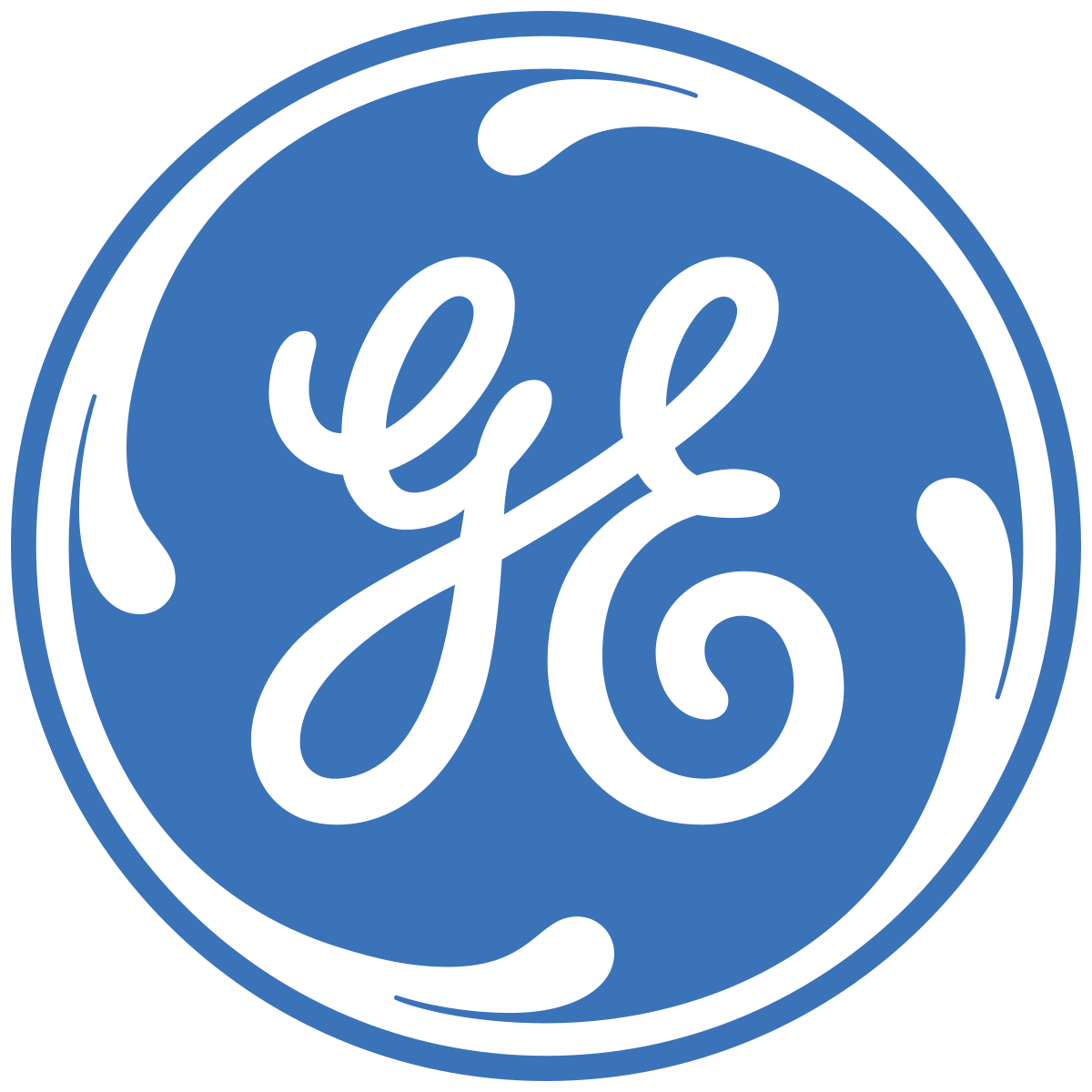
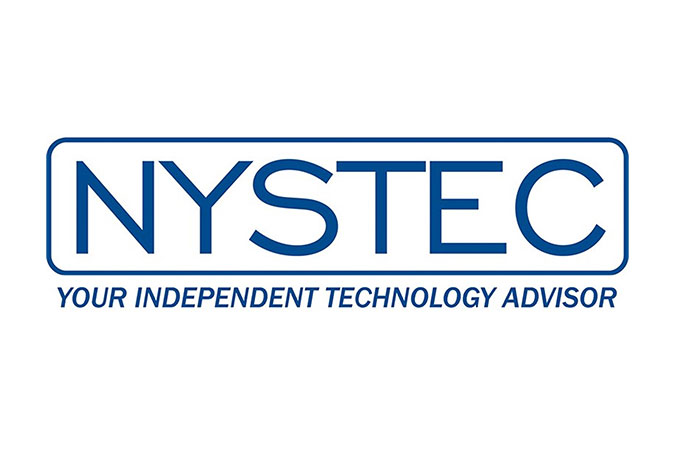


Transfer Opportunities
Being part of the largest system of public higher education in the United States, the State University of New York, SUNY FMCC has established a multitude of transfer pathways for our students at both SUNY and Private schools. Below are some of our major transfer colleges and universities.
61 Credits
2 Experienced Faculty
12,000+
Program Insight
Graduates of the Computer Science program have gone on to lucrative careers after transferring to 4-year colleges and universities. The education at SUNY FMCC provides a strong foundation in preparing you for future career success.
Learning Outcomes
Students will be able to:
-
Utilize desktop and internet-based applications to perform advanced end-user tasks.
-
Analyze algorithms, organize data structures, and employ object-oriented and modular programming techniques to successfully code event-driven programs.
-
Maintain professional growth, manage projects, and self-teach within a team environment with appropriate interpersonal skills.
Program Features
State-of-the-Art Computer & Cybersecurity Lab
With up-to-date software, hardware, and computer equipment for hands-on experience.
Hack FMCC Club
A student-run organization created to foster a community of individuals who solve problems through the innovative use of technology and spreads awareness of the rapidly growing software, networking, and cyber-security jobs available.
Project Excite Scholarship
Opportunity to receive a $5,000 scholarship, coaching, and job placement assistance upon graduation. Complete application at Project Excite H-1B Grant Program Registration (smartsheet.com).
Experienced Faculty
Learn from dedicated professors who have years of experience working in the public and private IT sector.
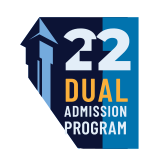
Dual Admissions Opportunities
Take advantage of the dual admissions opportunity and be accepted into computer science bachelorette program at SUNY Oswego while attending the Computer Science program at SUNY FMCC.
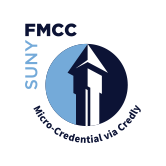
Microcredentials
This program may allow students to earn digital badges which verifies the achievement of in-demand skills and competencies. SUNY FMCC continues to expand opportunities for students to become more marketable to employers.
Course Highlights
Course Catalog
SUNY FMCC offers its catalog online in a downloadable PDF document that makes information on programs, courses and policies most current and accessible, while reducing impact on the environment. Additional information is available on the College’s website and portal. To read and search the FMCC Catalog, you’ll need Adobe Reader version 7.0 or later.
2025-2026 FMCC CATALOGProgram Course Layout
Students will take foundational computer science classes to prepare them for transfer to four-year colleges and universities. Here are just some examples.
This course covers the fundamentals of algorithms and object oriented software development. Topics include: modern IDE for software development, primitive and reference data types, encapsulation, information hiding, selection, iteration, functions/methods, parameters, recursion, exception handling, generic linear data structures (arrays), file types, file I/O, simple GUIs with event handling, programming to an interface, lambda expressions, semantics of inheritance and use of polymorphism, search (sequential, binary), select (min, max), and more!
This course covers the fundamentals of data structures and software modeling. Topics include modern IDE for software development, design and development of reusable software, software modeling (class diagram, use case, CRC card), introduction to analysis of algorithms, abstract properties, implementation and use of stacks, queues, linked lists, and binary trees, recursion and efficiency of recursive solutions, range of search (sequential, binary), select (min, max, median), and more!
This course will provide information on how good project management skills and effective use of technology can help you manage projects from an information technology perspective. Students will have an understanding of the ten project management knowledge areas including project integration, scope, time, cost, quality, human resource, communications, risk, procurement, and stakeholder management as well as all five process groups which include initiating, planning, executing, monitoring and controlling, and closing.






